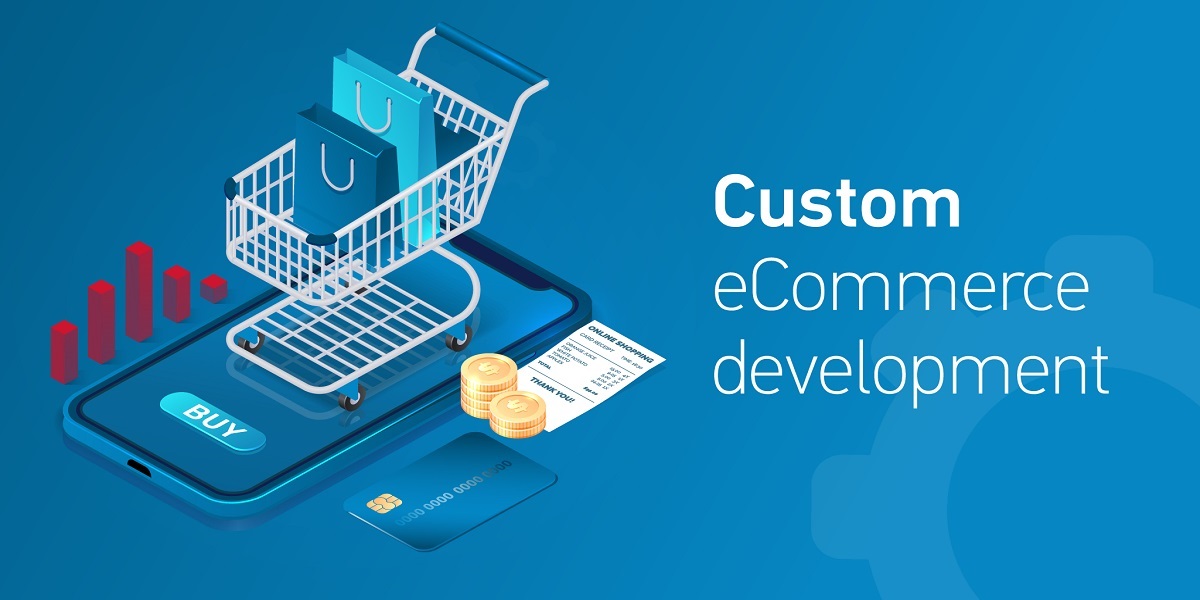5 Tips For Successful Custom Ecommerce Website Development
- By Adam Simpson
- 31-08-2022
- E-commerce

Ecommerce is fast becoming the primary source of revenue for many small businesses. Despite the high competition, ecommerce sites offer a way to connect with consumers. Ecommerce websites enable shoppers to purchase goods and services directly from sellers without traveling to a store. And because more consumers are using mobile devices to shop online, a custom ecommerce development company can help your business keep up with the competition.
Responsive custom ecommerce development is crucial for online businesses. With over 40% of ecommerce purchases made on a mobile device, mobile commerce is a must. If your website doesn't meet the expectations of mobile shoppers, you're unlikely to see any conversions. Ensure that your website is mobile-friendly by reducing the number of steps between the home page and product pages.
If you're ready to start selling your products online, here are some helpful tips for successful custom ecommerce web development:
1. Easy-To-Use Interface
First of all, your ecommerce website should load quickly. Studies have shown that 40% of visitors will leave a site that takes more than three seconds to load. Not only does this discourage potential buyers, it will also hurt your search rankings with Google. Your digital team should learn the best practices for creating sites that load quickly.
Integrate other services into your ecommerce website. For instance, consider integrating delivery services, email marketing tools, and FinTech trends. You should also consider including alternative payment methods, such as PayPal, Stripe, or other online payment methods. Though these payment methods aren't required in a custom ecommerce development project, they offer flexibility and are becoming increasingly popular in mobile and conservative areas. So, incorporate these payment methods in your custom ecommerce web development.
2. Pattern & Color Psychology
Color psychology is the study of the way that people perceive and react to colors. According to scientific studies, different colors evoke different emotions and perceptions, and we tend to respond differently to specific patterns. In the case of custom ecommerce development, the color of the store page impacts how the target audience perceives your products. This science has helped many businesses flourish by providing the perfect balance between functionality and aesthetics.
However, the psychology of colors has many different aspects. It can also be affected by your target demographic, as people react differently to other colors. For example, a dark blue ecommerce website may appeal to men, while women prefer a lighter tone of purple. A good color scheme should be based on your target audience's tastes and preferences. If you don't know your target demographic, consider what colors your competitors use.
3. SEO-Friendly Navigation
You can achieve search engine optimization with a combination of user-friendly design elements and SEO-friendly navigation in your custom ecommerce web development. Your website must have an intuitive navigation system to boost your organic rankings. A website should be structured in a hierarchy for optimal performance, with each page arranged by category and subcategory. SEO teams can optimize the website content to include helpful information that will guide consumers to product pages and company pages. In addition, horizontal linking is a critical SEO practice, as it helps consumers find more information about products and services.
4. Drop-Down Menus
The first thing to remember during custom ecommerce web development is that web pages are limited in space. To make the most of your real estate, you must maximize the use of the drop-down menu. Visiting a site with a drop-down menu lets visitors browse their entire collection or narrow their search by hovering over a category. Designer Junkie Apparel, for example, uses a drop-down menu to display all of its types.
While it's common to find custom ecommerce websites featuring a drop-down menu on the top navigation bar, you must get it right. It's also important to keep in mind web accessibility principles, emphasizing the ease of use for everyone, including users with disabilities. If a drop-down menu does not meet these standards, users may take a long time to find what they're looking for and may even miss essential parts of the website.
5. Creating A Custom List
Keeping your target market in mind is essential whether you're an existing business or just starting up an eCommerce website. You'll need to understand their lifestyle, geography, and shopping habits before starting your custom ecommerce development. You'll also want to conduct questionnaires to learn about their specific needs and desires. The research results will help you tailor your responses and develop a custom list according to your customer's needs.
For developing a custom list, you will have to choose developers with experience in custom ecommerce web development. These developers will work closely with your business's goals and requirements. You'll want to consider features such as security and scalability. Your site's database and architecture should be easy to expand, so you may want to consider cloud Infrastructure-as-a-Service. Ultimately, your website must grow with your business.
Conclusion
Before you start custom ecommerce web development, you should follow these tips. Ensure that you hire a software development agency specializing in ecommerce and with a proven track record. If possible, hire a developer from your area. This way, they will know your site's technical aspects and the specifics of your business. Research the different options based on your budget and the ecommerce web development company's portfolio. It is also a good idea to read reviews about each ecommerce development company and the work they have done in the past.


.jpg)
.jpg)
.jpg)
